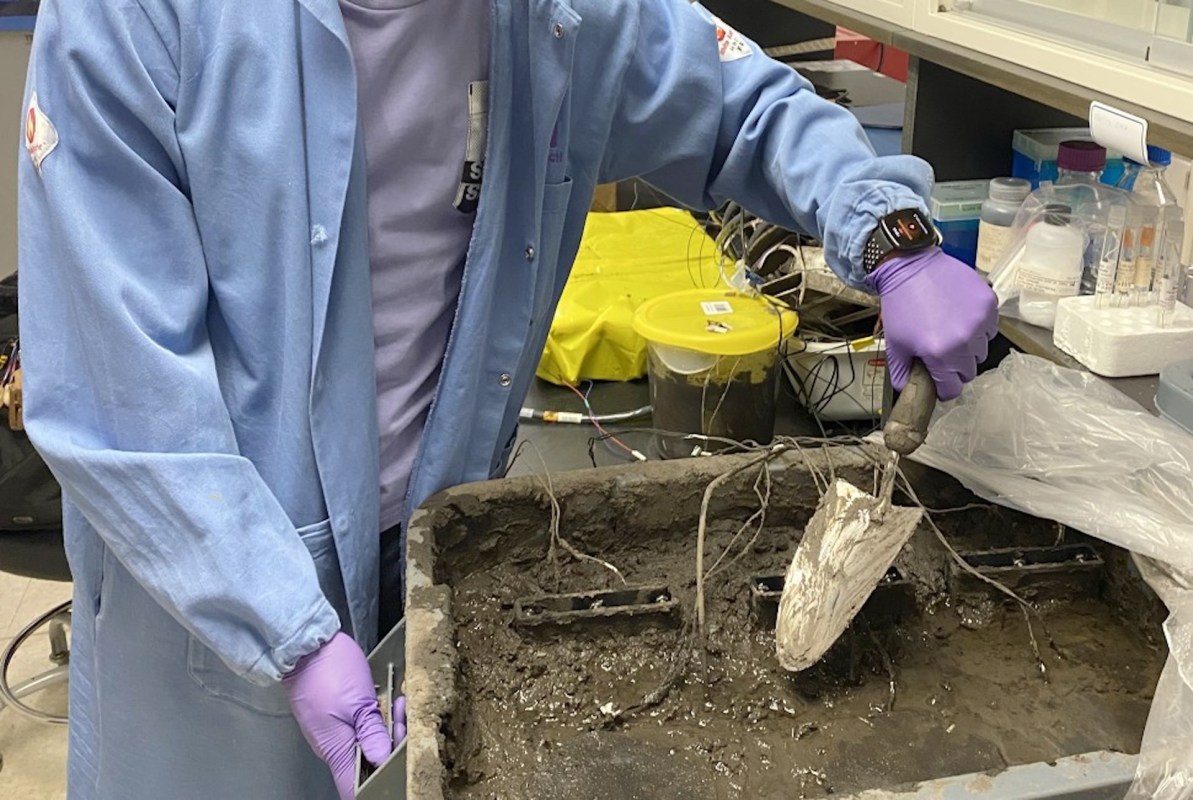Scientists led by researchers from Northwestern University in Chicago have developed a new type of fuel cell that can be harvested from dirt. This dirt fuel could provide essentially endless electricity, eliminating waste and harmful effects of other sources of fuel.
In a study published in January, the researchers outlined their findings regarding harvesting electricity from microbes, tiny organisms such as bacteria or fungi, living in the dirt.
With this new type of fuel cell, scientists hope to harness sources of energy that could act as a replacement for batteries, which can release toxins into the water or soil, increase landfill waste, cause fires, and can lead to draining communities of their resources.
The researchers found that these units, each not much larger than the size of a paperback book, according to The Independent, could power sensors in farming and remote devices in the Internet of Things (IoT), the large network of objects that use software or technology to exchange data with other devices, such as smartwatches and self-driving cars.
The process of developing microbial fuel cells, the basis for dirt-fueled power, began in 1911 — as the Independent explained — when British botanist Michael Cressé Potter first successfully generated electricity from microorganisms. Potter found that these fuel cells could operate like a battery.
While traditional batteries use chemicals to generate electricity, these microorganisms would naturally generate electricity through the flow of electrons. Because these microbes need oxygen and water and have low power output, it has been hard to make "practical use of them, especially in low-moisture conditions," Northwestern alumnus Bill Yen, who led the research, said in a report by the university.
Watch now: Alex Honnold test drives his new Rivian
The research team tested the dirt-powered fuel by harvesting the power of microbes in the soil to power sensors that could measure soil moisture and the touch of passing animals, important trackers for precise farming techniques to improve crop yields, finding they could work in wet and dry conditions and outlast other technology by 120%, according to the university report.
"These microbes are ubiquitous; they already live in soil everywhere," said George Wells, an associate professor of civil and environmental engineering at Northwestern University. "We're not going to power entire cities with this energy. But we can capture minute amounts of energy to fuel practical, low-power applications."
Lithium batteries power big parts of our daily lives, accounting for $54.6 billion in profit annually, according to data from Statista. However, because of the magnitude of lithium they contain, mining and disposing of these batteries cause problems, such as contaminating our ground and raising human rights concerns.
"The number of devices in the Internet of Things (IoT) is constantly growing. If we imagine a future with trillions of these devices, we cannot build every one of them out of lithium, heavy metals and toxins that are dangerous to the environment," Yen said in the university report. "We need to find alternatives that can provide low amounts of energy to power a decentralized network of devices … As long as there is organic carbon in the soil for the microbes to break down, the fuel cell can potentially last forever."
TCD Picks » Quince Spotlight

Although the study provides a promising look at an alternative to lithium batteries, there is still a long process ahead in creating the supply of this type of energy. However, it is one of the latest advancements in alternatives to lithium batteries. Scientists have developed ways to produce and recycle lithium batteries from peanut shells, fruit peels, paper products, and even cow hair.
Shifting from dirty energy to dirt energy could be the future of power from unexpected sources.
Join our free newsletter for weekly updates on the coolest innovations improving our lives and saving our planet.













